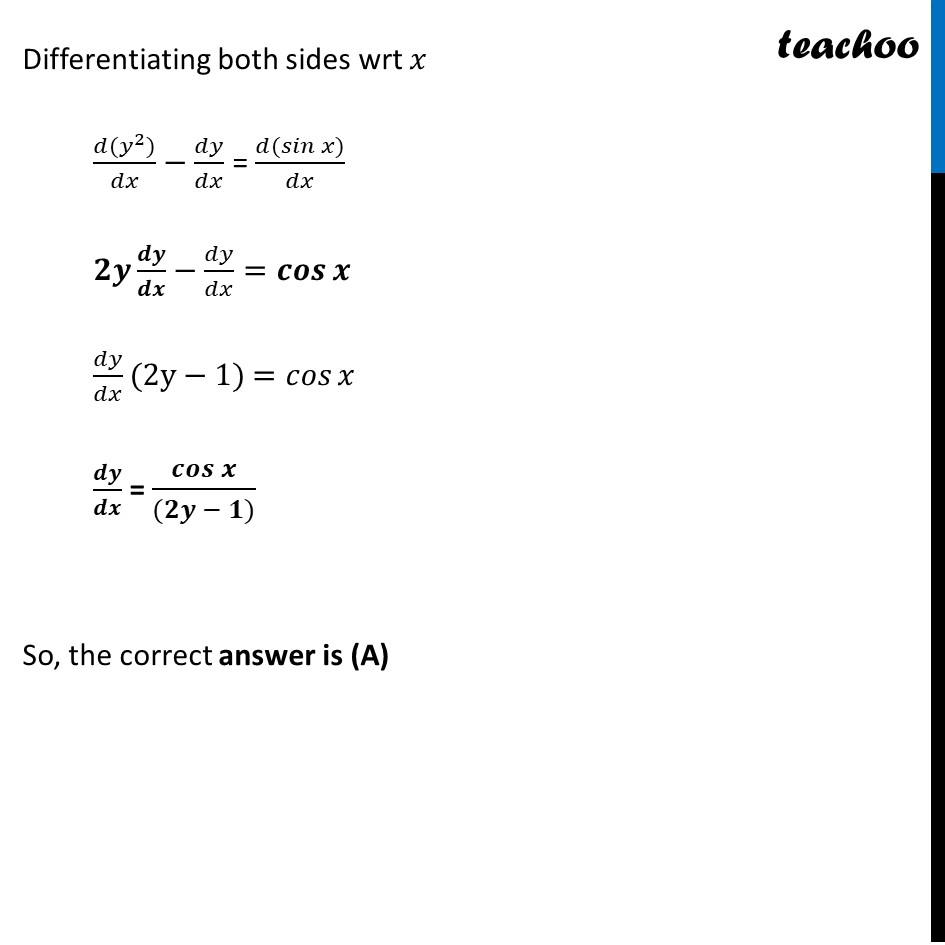If y = √(sin〖x+y〗 ), then dy/dx is equal to
(A) cosx/(2y-1)
(B) cosx/(1-2y)
(C) sinx/(1-2y)
(D) (-4x 3 )/(2y -1)
This question is similar to Example 25 - Chapter 5 Class 12 - Continuity and Differentiability


NCERT Exemplar - MCQs
Last updated at December 16, 2024 by Teachoo
This question is similar to Example 25 - Chapter 5 Class 12 - Continuity and Differentiability


Transcript
Question 20 If y = √(sin〖𝑥+𝑦〗 ), then 𝑑𝑦/𝑑𝑥 is equal to (A) cos𝑥/(2𝑦−1) (B) cos𝑥/(1−2𝑦) (C) sin𝑥/(1−2𝑦) (D) (−4𝑥^3)/(2𝑦 −1) 𝑦=√(𝑠𝑖𝑛〖𝑥+𝑦〗 ) Squaring both sides 𝑦^2=(√(sin〖𝑥+𝑦〗 ))^2 𝒚^𝟐=𝒔𝒊𝒏〖𝒙+𝒚〗 𝑦^2−𝑦=sin𝑥 Differentiating both sides wrt 𝑥 (𝑑〖(𝑦〗^2))/𝑑𝑥−𝑑𝑦/𝑑𝑥 = (𝑑(𝑠𝑖𝑛〖𝑥)〗)/𝑑𝑥 𝟐𝒚 𝒅𝒚/𝒅𝒙−𝑑𝑦/𝑑𝑥=𝒄𝒐𝒔𝒙 𝑑𝑦/𝑑𝑥(2y−1) =𝑐𝑜𝑠𝑥 𝒅𝒚/𝒅𝒙 = 𝒄𝒐𝒔𝒙/((𝟐𝒚 − 𝟏)) So, the correct answer is (A)